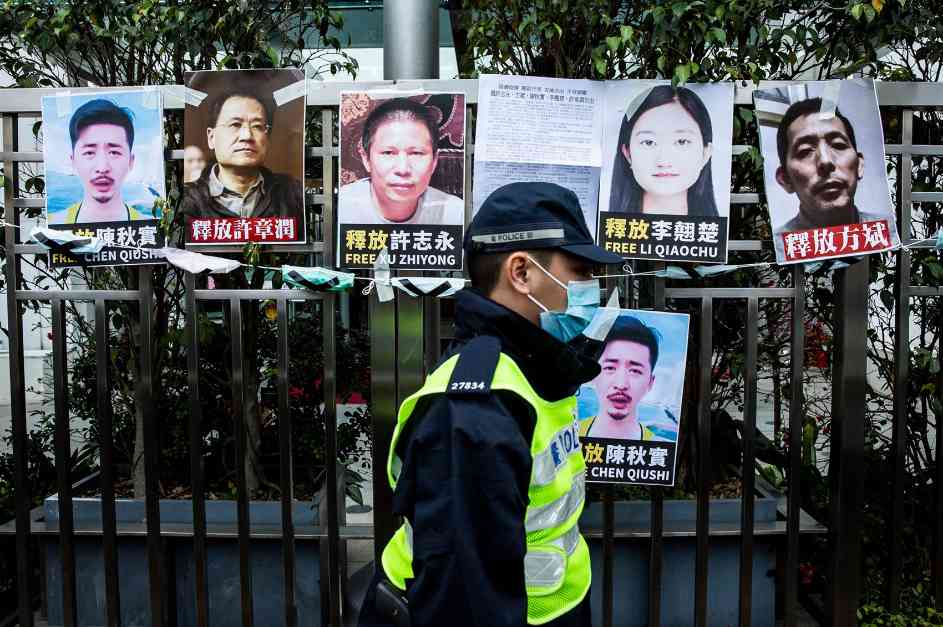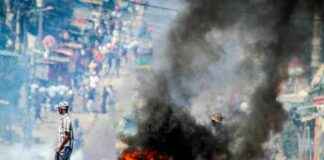China’s upcoming appearance at the United Nations Human Rights Council (HRC) on January 23 is a crucial moment for the international community to hold Beijing accountable for its human rights abuses. This Universal Periodic Review (UPR) will provide an opportunity for UN member states to evaluate China’s human rights record, which has deteriorated significantly under Xi Jinping’s authoritarian rule.
Under Xi Jinping’s leadership, China has tightened control over its population, leading to widespread persecution of dissidents and extensive government monitoring of all aspects of life. The crackdown on human rights extends beyond China’s borders, with the arbitrary detention of over a million Uyghurs and the targeting of Hong Kong dissidents who have fled abroad. Some observers have drawn parallels between Xi’s rule and the extensive political control exercised by Mao Zedong.
The assault on human rights in China has been met with harsh punishment for those who dare to challenge the government. Rights defenders like Xu Zhiyong, Ding Jiaxi, Ilham Tohti, and Rahile Dawut have faced lengthy jail terms or life sentences for their activism. The government’s crackdown on the weiquan movement, which seeks to defend rights, has led to forced disappearances, black jails, and ongoing persecution of activists.
As China prepares for the UPR at the HRC, it has engaged in tactics to manipulate the process and evade accountability for its human rights violations. The government has limited civil society input, submitted misleading information, and enlisted allies with questionable human rights records to praise Beijing’s actions. By flooding the proceedings with supportive statements, China aims to deflect criticism and undermine the review’s effectiveness.
One of the key aspects of the UPR process is the national report prepared by the government under review, which should reflect a comprehensive assessment of human rights in the country. However, China’s national report is rife with inaccuracies and omissions, painting a rosy picture of human rights achievements while ignoring serious violations. Independent civil society groups are excluded from contributing to the report, as authorities target activists who could offer valuable insights.
During the dialogue at the HRC, other governments have the opportunity to question the government under review and make recommendations for improvement. However, China’s allies often offer vague or supportive recommendations that do not address the root causes of human rights abuses. By manipulating the process and pressuring UN institutions, China aims to avoid accountability and whitewash its human rights record.
The upcoming UPR is a critical moment for the international community to challenge China on its human rights abuses and demand answers for its actions. Governments should raise concerns about genocide, crimes against humanity, and efforts to eradicate ethnic identities, particularly regarding the treatment of the Uyghur community. They should also demand explanations for the detention of human rights defenders and urge Beijing to allow UN experts to conduct visits to China.
Volker Turk, the UN High Commissioner for Human Rights, should use the review as an opportunity to reaffirm the commitment to investigating Chinese government crimes against humanity. The credibility of the UPR process hinges on rights-respecting diplomats making the most of this opportunity to hold China accountable for its actions.
In conclusion, the UPR at the HRC presents a crucial opportunity for the international community to address China’s human rights record and uphold accountability for its violations. By challenging Beijing’s manipulation of the process and demanding transparency and justice, governments can send a strong message that human rights abuses will not be tolerated. It is imperative for all stakeholders to engage in good faith and work towards a more just and rights-respecting world.

















